Está Todo Bien: Venezuela in a Nutshell
This documentary by Venezuelan filmmaker Tuki Jencquel, filmed at Caracas with no financial support from the state and therefore complete independence, starts its international film festival round. Its focus: our people’s resilience in an overwhelming routine.


Photos: Todo está bien
It’s Wednesday night at the Human Rights Watch Film Festival in London. People start to gather around the Barbican Cinema for the screening of Está Todo Bien, by caraqueño director Tuki Jencquel. Already in the queue, we recognize each other. Some Venezuelan slang makes me turn around and a woman looks at me and says “venezolana, me imagino.” We both smile. The theatre is full, tickets are sold out.
The lights go out and on the screen, it’s morning time in Caracas. Rosalía opens her pharmacy “Farmacia Don Bosco” the way she has probably done for the past 30 years. She doesn’t have any of the things people come looking for and we can tell by the resignation in her voice that this situation has been going on for a while. Está todo bien (It’s All Good) appears in red letters over a black background.
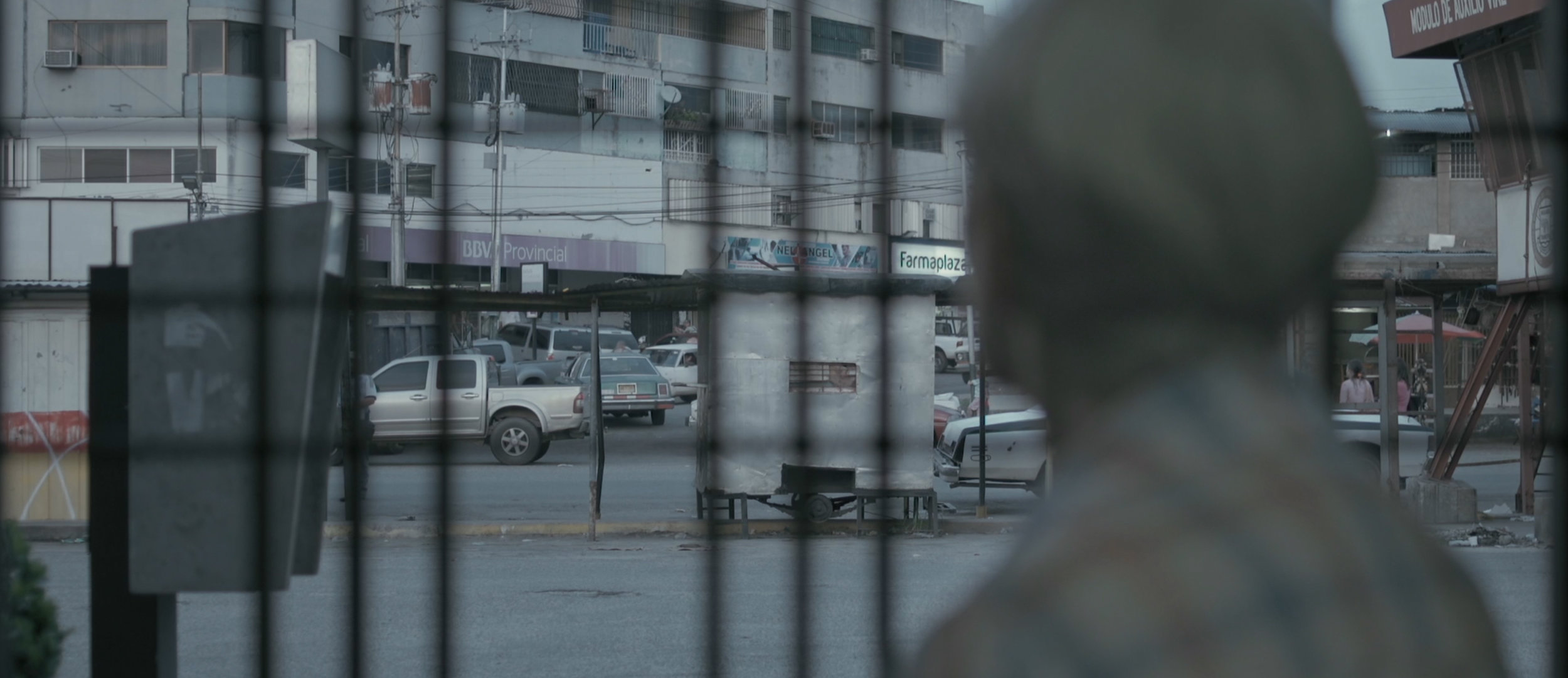 “Also searching for medicines, Mildred. She’s a cancer survivor struggling to avoid relapse.”
“Also searching for medicines, Mildred. She’s a cancer survivor struggling to avoid relapse.”
We’re introduced to the characters through role play in a psychodrama session. We first meet 20-year-old Rebeca, who uses social media to find treatment for her acute lymphoblastic leukemia. Also searching for medicines, Mildred. She’s a cancer survivor struggling to avoid relapse. Then, there’s Efraím, a doctor in his early thirties constantly fighting the idea of emigration. He treats emergency patients at the Periférico de Coche Hospital for a $12 monthly salary. Then there’s Francisco helping others, too. He’s an activist who goes out of his way to bring medicines into the country and get them to the people in need. And, of course, Caracas. The omnipresent character. With its beauty and monstrosity, imposing itself from above.
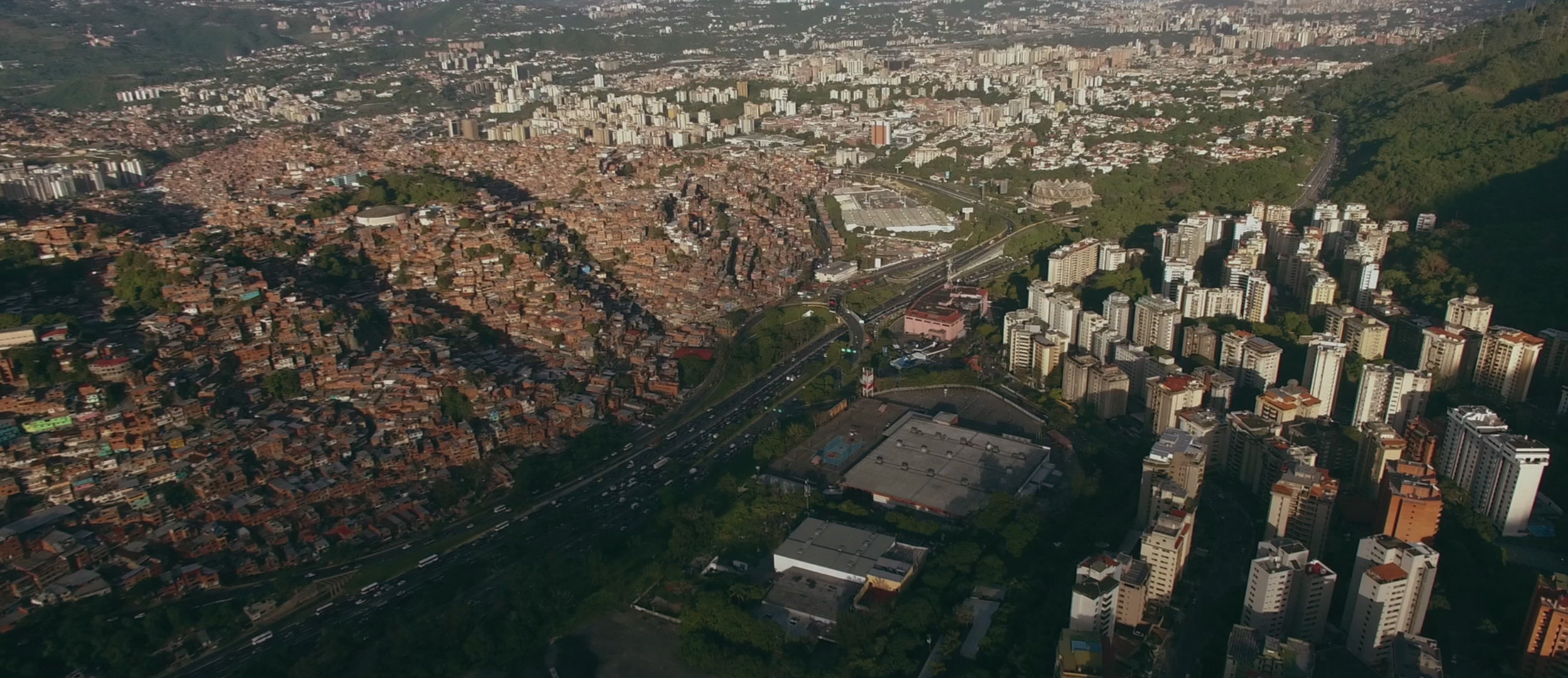 “And, of course, Caracas. The omnipresent character. With its beauty and monstrosity, imposing itself from above.”
“And, of course, Caracas. The omnipresent character. With its beauty and monstrosity, imposing itself from above.”
We stand by these characters in their day-to-day life, the reflection of a powerless middle class that lives on despite the consequences of a failing state. Jencquel isn’t interested in showing stats and figures, but in stories that depict the humanity behind the numbers and represent Venezuela’s society at a larger scale. All characters navigate their way through politics and economic chaos going against the current. Resilience is what unites them, according to the director, and that’s exactly what we witness.
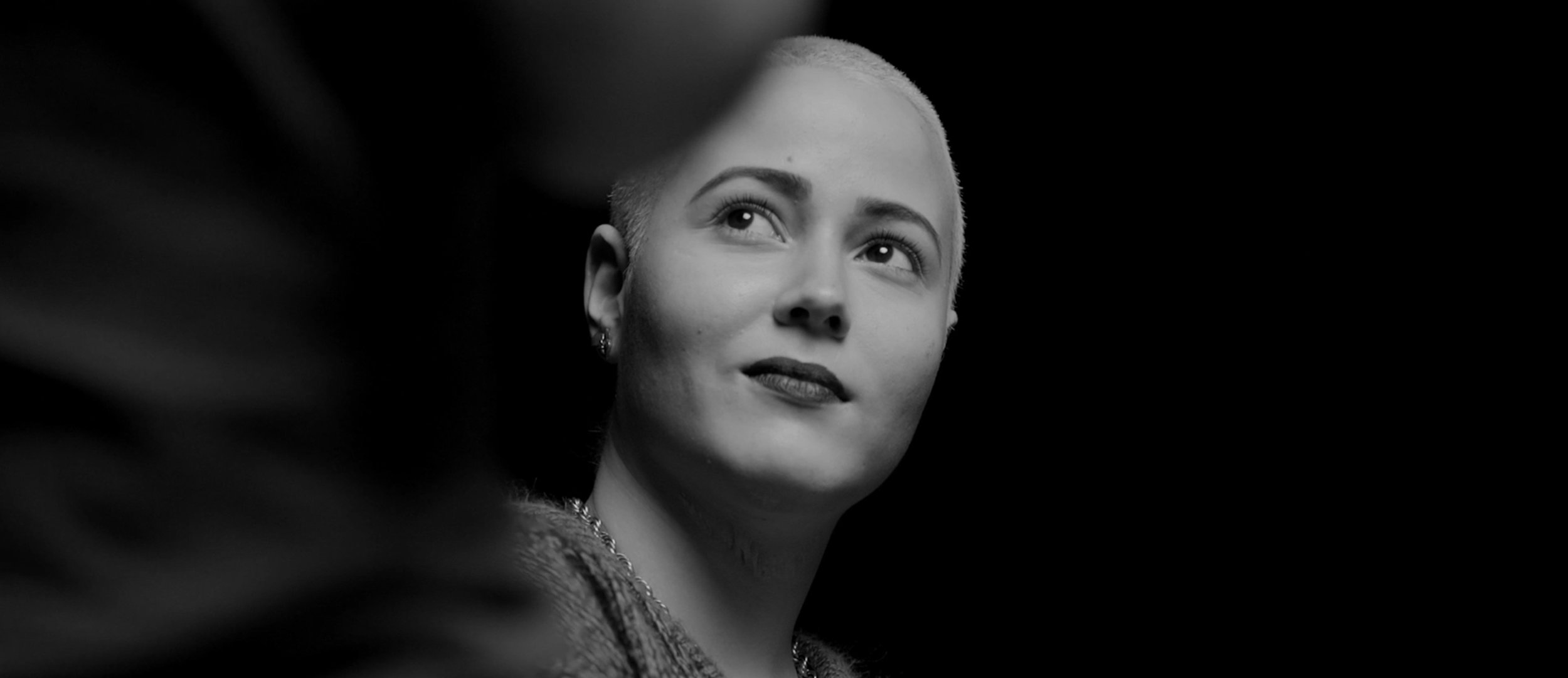 “Jencquel isn’t interested in showing stats and figures, but in stories that depict the humanity behind the numbers and represent Venezuela’s society at a larger scale.”
“Jencquel isn’t interested in showing stats and figures, but in stories that depict the humanity behind the numbers and represent Venezuela’s society at a larger scale.”
While the focus of the film is definitely the critical health situation, emigration is constantly present through the debate to stay or to leave the country, in family members that have already left and don’t know when they’re going to see each other again and try to send remittances to help their loved ones, the use of social media and crowdfunding abroad to find what’s needed at home, and the organized Venezuelan communities overseas that try to get humanitarian aid in.
The documentary, premiered at Sheffield Doc/Fest (UK) and selected for “Best of Fests” section at the International Documentary Film Festival Amsterdam (IDFA) in 2018, is built in capsules composed by footage of the characters in their daily lives, bits of them during the psychodrama session and aerial shots. It was easy to distinguish Venezuelans from foreigners at the cinema by the reaction to some specific moments that can be taken with humor. Tuki has noticed that only the Venezuelan spectator dares to laugh while others might not do so out of respect or simple misunderstanding. In all fairness, it’s very hard to translate “mardito” with a maracucho accent and explain why that’s funny when the guy who’s talking describes the bribe at customs to get meds into Venezuela. These moments of laughter are followed by deafening silence and heavy breathing to contain tears. Every time Caracas appears, it feels like holding your breath for a MRI scan.
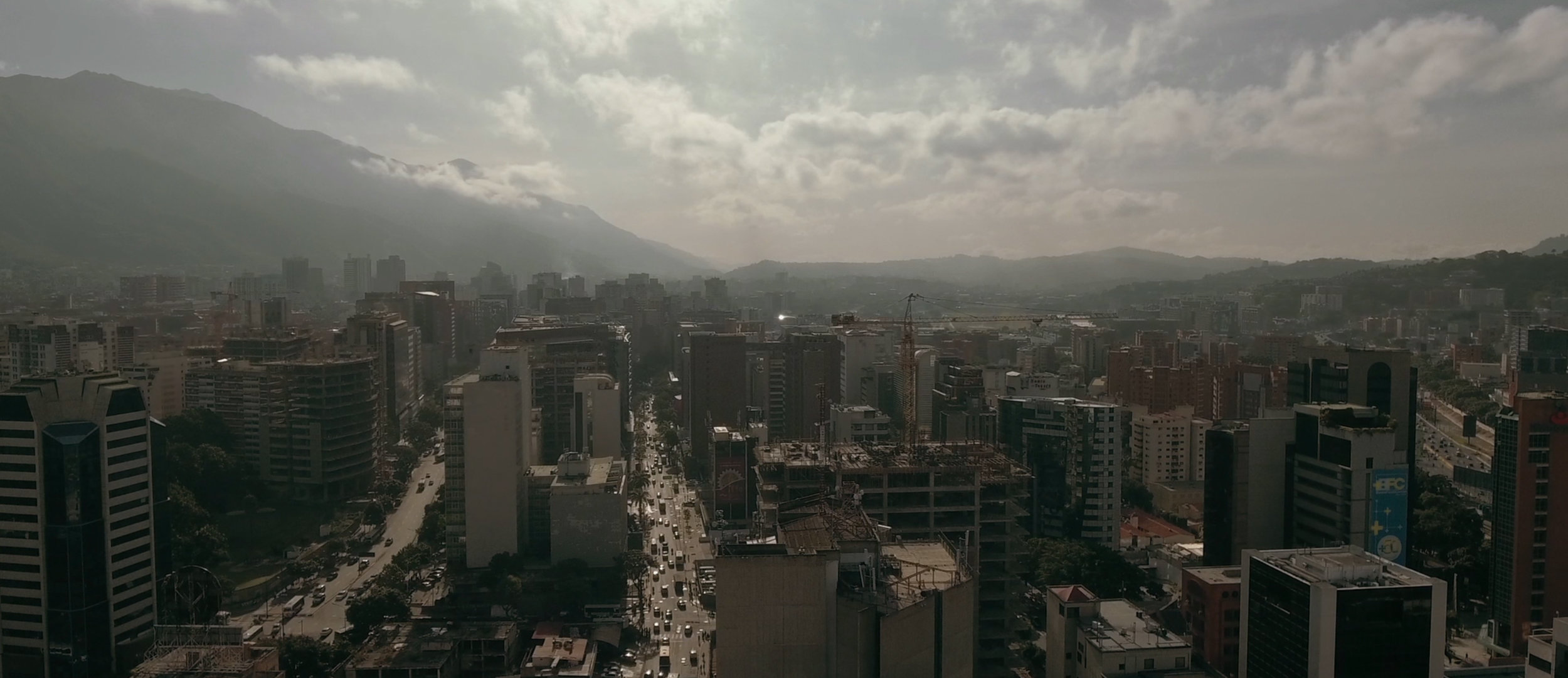 “Every time Caracas appears, it feels like holding your breath for a MRI scan.”
“Every time Caracas appears, it feels like holding your breath for a MRI scan.”
This self-funded film was shot between May 2016 and August 2017, and it doesn’t count with the support of the CNAC (Autonomous National Center of Cinematography, the state institution created to fund national film production) in any way, shape or form. The director explains he didn’t approach them because he wanted to keep this production low profile, due to its content, and he didn’t think they would approve the project.
He’s not wrong or alone in that thought. On one hand, censorship in Venezuela is well-known, especially around the topic of the complex humanitarian emergency that the state head-on denies. On the other, after years of relative independence, the CNAC shifted hands in 2016 and, the panorama has been shady ever since. The use of their official social media to promote the government’s agenda, for example, has raised eyebrows on an already controversial decision and it adds to the general distrust of this body in the filmmaking community.
Jencquel says he was able to shoot his film with a lot of discretion and by being close to the characters in their daily environments. The most difficult one was the hospital, since no recording is allowed inside. He bypassed security by carefully using the camera at specific blind spots previously detected, and only explaining the filming to those who appear on the screen. The hospital has cameras that are allegedly reviewed by SEBIN; the director recalls a tense moment when a car intercepted him while shooting some political billboards. He thinks it was colectivos or some paramilitary group. They were very aggressive, trying to find out what they were doing. Luckily, the producer had his ID from the Cuban Film School and they managed to get out of that situation by saying it was an assignment for Cuba.
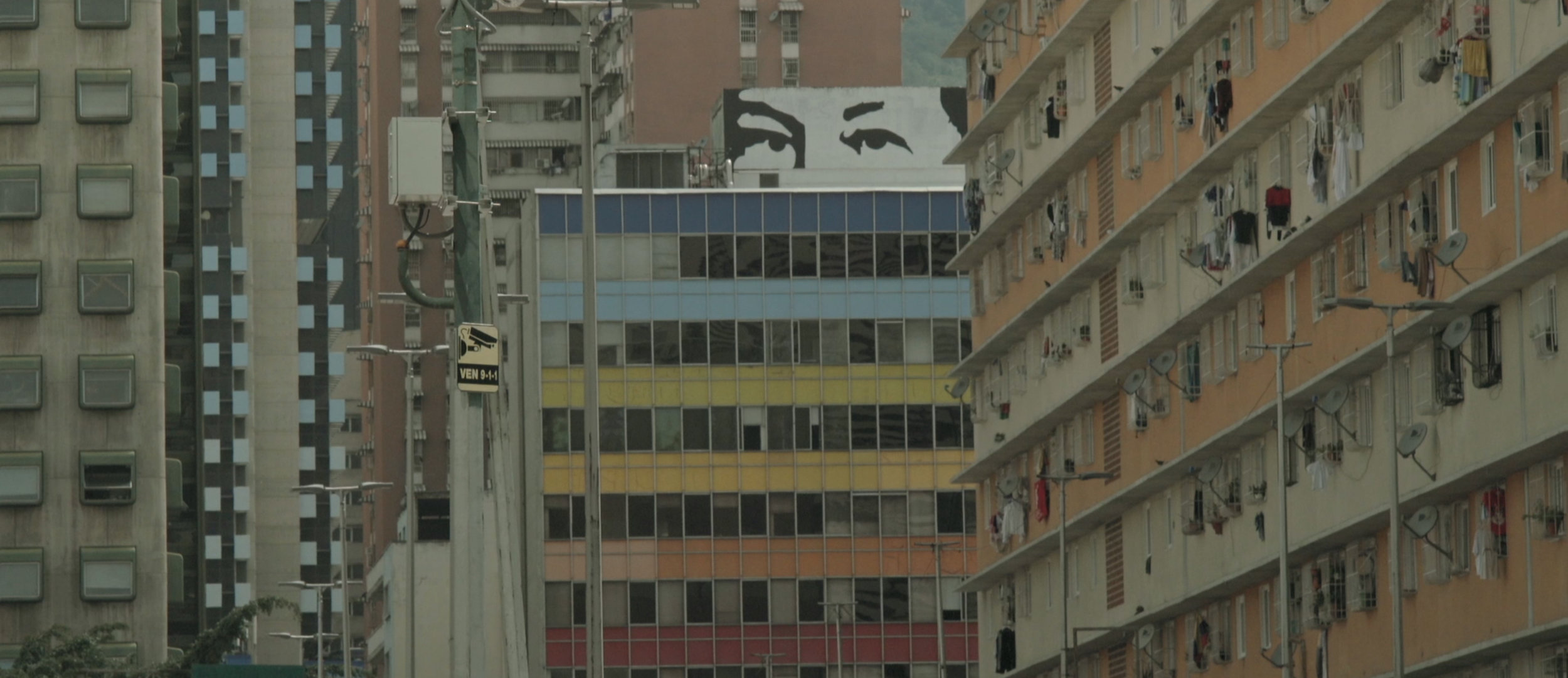 “Jenquel succeeds at transcending data and showing what most Venezuelans aren’t able to explain in words, the daily lives of common people in a humanitarian emergency.”
“Jenquel succeeds at transcending data and showing what most Venezuelans aren’t able to explain in words, the daily lives of common people in a humanitarian emergency.”
So far he hasn’t received any messages from official sources, maybe because the film hasn’t been screened in Venezuela. Está todo bien, along with 5 other features, was due to premiere at the 7th edition of the Caracas Doc last November, but the festival was postponed because no cinema dares to screen these films, given their content.
Jenquel succeeds at transcending data and showing what most Venezuelans aren’t able to explain in words, the daily lives of common people in a humanitarian emergency. Let’s hope the film can make it to VOD platforms for everyone to see. In the meantime, I recommend you watch his previous medium-length documentary Sin ti, contigo (awarded Premio Feisal at Festival Internacional de Cine en Guadalajara, 2011) and be on the lookout for Está todo bien in its international film festival round.
Caracas Chronicles is 100% reader-supported.
We’ve been able to hang on for 22 years in one of the craziest media landscapes in the world. We’ve seen different media outlets in Venezuela (and abroad) closing shop, something we’re looking to avoid at all costs. Your collaboration goes a long way in helping us weather the storm.
Donate



